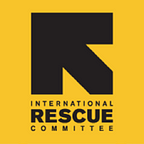Meet three refugee families embarking on a new life in a new country
Today, 65 million people have been forced to flee their homes. Next year, 1.19 million of those refugees will be in need of resettlement.
Each one of those 1.19 million refugees are seeking a safe home and a brighter future for their family.
Meet three resettled refugee families embarking on a new life in a new country.
A bright future
Name: Lok and Navin
From: Bhutan
Resettled to: UK
Back home in Bhutan, Lok was just starting his career as a vet when ethnic conflict forced him and his family to flee to Nepal. For the next 18 years, their home was a refugee camp. He lived with 14 family members under one roof and worked as a voluntary teacher.
“I said to my friends ‘how long can we be in this situation?’ We lived in despair.”
To begin with he dreamed of being repatriated to Bhutan, but after many years of waiting he lost hope. “I began to long to be resettled,” he says. He first applied to resettle in New Zealand, as he hoped to get a job as a vet there, but after years of no news, he applied to the UK.
“We thought that once we relocated to another country we would have better opportunities to sustain ourselves and become self-reliant.”
Five years later, the family are living in Greater Manchester. “When we landed it was really cold, we were shivering. We didn’t know what life would be like, we didn’t know what kind of home we would have.” Since arriving the family has worked hard to integrate into British life. All of his three sons are thriving at school and the eldest, Navin, is in his second year at University studying Computer Science.
“Resettlement is really important for the future of the younger generation,” says Lok.
For Lok, the education opportunities his boys have been exposed to have far outweighed any challenges they faced through the resettlement process. “My family have a bright future in the UK, so long as they work hard to achieve their goals.”
It was like heaven calling
Name: Khaled
From: Syria
Resettled to: Sweden
Before war broke out, Khaled, now 33, lived a happy and stable life with his family near Damascus, Syria, where he worked as a health care technician and grew cherry trees.
His life changed forever on the 16th March 2014. “Everything was destroyed. My dreams, everything we built, gone in an instant,” he says. His house was hit by heavy shelling. That day he lost a number of his family members, including his two children. His own leg was shattered.
After spending around a year in Lebanon receiving treatment, he was offered the opportunity to apply for resettlement.
“I thought to myself, it’s almost like heaven calling.”
The main reason he accepted resettlement, he says, was to receive treatment, and to regain some sort of normality and a sense of security in his life.
Later that year he was resettled to Sweden. “When I left I was sad and apprehensive, I was leaving everything familiar behind. Today, however, I am happy with my family in Sweden, being treated humanely and with respect and dignity. My neighbours and even random people on the street ask me ‘how am I doing?’ That is what I like the most.”
Big dreams for their new lives
Name: Zakharia and Nizar
From: Palestine/Syria
Resettled to: Germany
Zakharia, 20, is Palestinian refugee. He had lived in Homs, Syria his whole life. After his school was destroyed he decided he had finally had enough of the war, and along with his cousin Nizar and their families, he decided to flee.
“There are many young men between 18 and 40 years old who would have to join the army in Syria. Kill people. There are many people who don’t want to do that. That is why they had to flee.”
After being resettled to Munich both men are slowly finding their feet. “I have two German friends. Sometimes we go to the park and hang out, and sometimes we go to the river. The people in Munich are very nice,” explains Nizar.
Both Zakharia and Nizar have big dreams for their new lives in Germany.
“I went to school in Syria for 11 years. I wanted to go to university and I wanted to study IT. But I could not do that because I had to leave my home,” says Zakharia.
“I had no idea how it would be in Germany. But it is nice here. There are several options to learn. That is what I like the most,” he continues.
“I want to do vocational training as an IT specialist. And then I would like to stay in Munich,” says Zakharia.
“In Syria I graduated from University with a degree in physiotherapy and I want to continue working in this field in Germany,” says Nizar. “Work is always good. And I want to help other people in Germany. Maybe I will volunteer in a resettlement programme.”
Resettlement makes us more.
More lives saved. More shared responsibility. More progressive Europe.
Read more about our case for resettlement:
The International Rescue Committee responds to the world’s worst humanitarian crises, helping to restore health, safety, education, economic wellbeing, and power to people devastated by conflict and disaster. Founded in 1933 at the request of Albert Einstein, the IRC has offices in London, Brussels and Geneva and is at work in over 40 countries including in Greece, Germany and across the Balkans, helping people to survive, reclaim control of their future and strengthen their communities.
